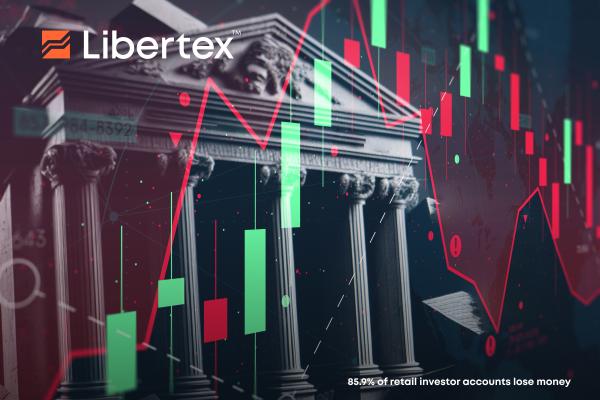Last week, we discussed the fast-approaching US debt ceiling as a deal between both parties in the US House of Representatives remained elusive. But then the House approved the Fiscal Responsibility Act of 2023 with an overwhelming majority vote of 314-117 on 31 May. The drama still wasn't over, however, as the Senate still had to approve it in time to avoid catastrophe. Well, with mere days to spare before the deadline that would see the world's biggest economy face financial default, the Senate, at last, approved the legislation to lift the debt ceiling in a relatively convincing bipartisan 63-36 vote, and Joe Biden signed the bill into law on Saturday, 3 June.
The much-anticipated agreement will see the debt ceiling suspended until 1 January 2025, and according to the Congressional Budget Office, the new act will generate over $1.5 trillion in savings over the course of the decade ahead. Despite some last-gasp attempts by ultra-conservatives to have 11 potentially devastating amendments adopted, all were rejected in the Senate, and the bill ultimately passed as is. So, what does this mean for world markets, and how should traders and investors react to this news?
Time to restock?
Although the effect on the stock market has been relatively modest since the bill was signed into law – with major US indices like the Dow Jones IA, S&P 500 and Nasdaq 100 registering only modest gains of between 1-2% since the news broke – the impact of the increased debt ceiling cannot be underestimated when it comes to Wall Street. Essentially, market movers never doubted for a second that the legislation would pass. After all, we've already seen the ceiling raised an average of once per year since 2001. As a result, much of the benefit of the debt limit increase was already priced in during the rallies in US equities early in the year. But rest assured, if a deal had not been forthcoming, stocks would have surely tanked hard.
Europe reacted in much the same way, with the Stoxx 600 index gaining 1.5%, while individual sectors like mining and oil & gas seemed to do the best, recording average gains of between 3-4%. Given the long-term suspension of the debt ceiling that the Fiscal Responsibility Act of 2023 entails, the supportive environment for stocks looks set to continue (provided that the Fed backs off on its hawkish policy before year-end). As such, now could be a good time for medium- to long-term investors to increase purchases of discount stocks.
That's oil, folks
As we mentioned earlier, energy and commodities have reacted even more positively to the news. The reasons for the larger jumps in mining and oil & gas are rather complicated, however, and it's not necessarily guaranteed that Brent, WTI and Henry Hub will respond in kind. However, one thing is clear: beyond the general boost that the US economy being saved from default brings for all sectors, the promise of even more supply-side inflation is a growth factor in its own right for these asset classes. After all, energy commodities are exactly that: commodities. If the US debt is free to increase, which it surely will following the temporary removal of this ceiling, the value of hard assets like oil, gas, coal and minerals can only increase. So, what we're seeing is a double whammy of sorts whereby the guaranteed further depreciation of fiat is buoying the prices of these commodities, and the generally positive economic sentiment surrounding the avoidance of default is multiplying this effect.
Most varieties of crude are now firmly above the key $70 a barrel level, with Brent futures rising $1.85 (or 2.5%) to hit $76.13 a barrel and US WTI crude up $1.64 (or 2.3%) to top out at $71.74. All that remains now is for OPEC+ to reach a new deal on production cuts amid Saudi discontent with Russia's failure to reduce supply as agreed at the cartel's previous meeting. If harmony can be achieved, then we would be wise to expect further price gains ahead for oil, especially now the debt limit issue has been put to bed.
Going for gold
At the height of the debt ceiling panic, when it really looked as if a deal might not be forthcoming, there was only one instrument that felt like a safe bet. As usual, gold offers security and an unbeatable (as of yet) store of value potential. So, now that the bill has been passed, does that mean the gold bugs are about to lose out? Well, not exactly. An increase in the US national debt will only mean a weaker dollar in the long run. And what does that mean for the dollar-denominated gold price? You guessed it: more growth ahead.
While the yellow metal is currently more or less unchanged following the deal's announcement (gold, in fact, lost 0.1% in the days following the announcement), this is more of a knee-jerk reaction to the immediate strengthening of the US dollar on the aversion of a potentially devastating default. Over the longer term, it's hard to see how the greenback can avoid losing value as more are inevitably printed and the value of the existing money supply is further devalued. In any event, any serious investor should have some kind of gold allocation to hedge against short-term volatility. However, taking into account both the factors alluded to above and the nascent commodities super-cycle, many analysts are suggesting that gold is a solid buy at present prices.
Trade it all with Libertex
Libertex is a well-respected CFD broker with a long history of providing traders and investors across Europe with access to world markets. With Libertex, you can trade long or short CFD positions on a wide range of popular underlying assets, including major indices like the Dow Jones Industrial Average, S&P 500 and Nasdaq 100; oil and gas vehicles like Brent, WTI and the Henry Hub; and even precious metals like gold and silver. Best of all, Libertex offers some of the lowest levels of commission and tightest spreads in the industry. And because Libertex offers an easy-to-use app, you can keep your entire portfolio in one easily accessible location. For more information about Libertex's available asset classes and investment options, visit www.libertex.com
Risk Warning: CFDs are complex instruments and come with a high risk of losing money rapidly due to leverage. 85.9% of retail investor accounts lose money when trading CFDs with this provider. Tight spreads apply. Please check our spreads on the platform. You should consider whether you understand how CFDs work and whether you can afford to take the high risk of losing your money.


